There are a few body language signs that you should always look out for so that you can read anyone like a book! Knowing the tricks to read body language is one of the most useful skills you can have in your repertoire.
As we all know, communication is essential in society. Advancements in technology have transformed the way that we correspond with others in the modern world.
Because of the constant buzz in our technological world, it’s easy to forget how important communicating face-to-face is.
When conversing old-school style, it’s not only speech we verbalize that matters, but what our nonverbal gestures articulate as well.
Body language is truly a language of its own. We all have quirks and habits that are uniquely our own. What does your body language say about you? Do you lie?! And what can you learn about others by becoming aware of what some of the signs mean?
I thought it would be fun to list some of the well-known signs that body language experts study and recognize. It is said that when talking to a person the information that we receive can be broken down as:
- 10% of what the person actually says.
- 40% from the tone and speed of the voice.
- 50% is from their body language.
Related: 13 Useful Psychology Tricks That Will Make Your Life Easier
40+ Body Language Signs To Strip Down Someone’s Personality
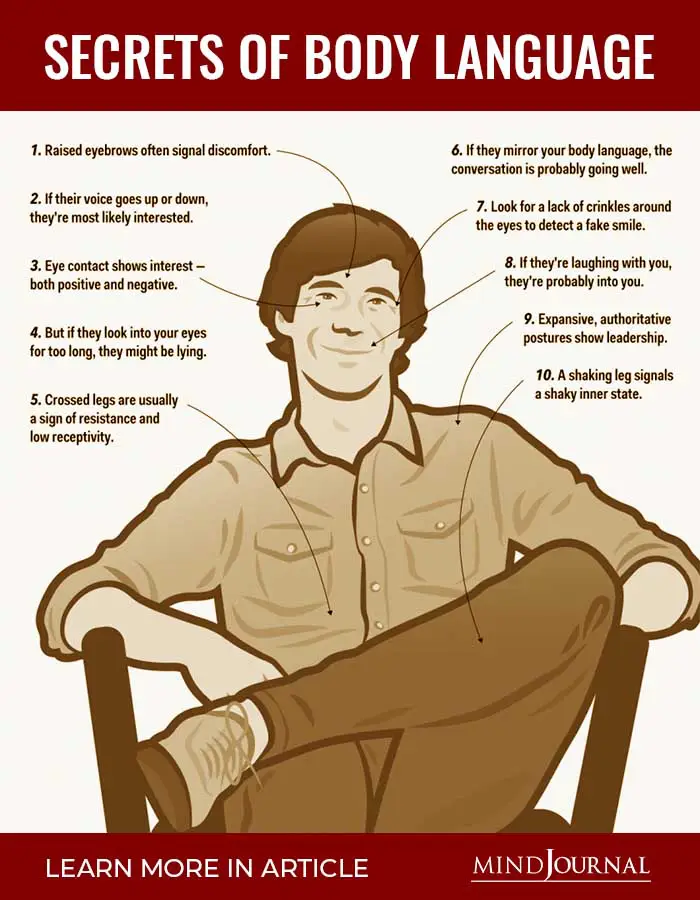
1. Head
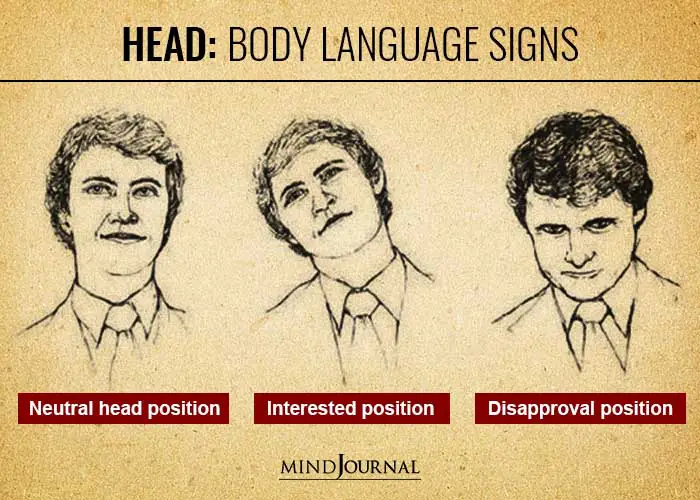
1. Lowering one’s head can signal a lack of confidence. If someone lowers their head when complimented, they may be shy or timid.
2. Touching or tugging at one’s ear can indicate indecisiveness.
3. Sincere smiles encompass the whole face (noticeable in the eyes).
4. A false smile usually only engages the lips.
5. Tilting one’s head can symbolize interest in something or someone.
6. Overly tilted heads can be a sign of sympathy.
7. Closing of eyes or pinching at the bridge of one’s nose is often done when making a negative evaluation.
8. When a listener nods, this is usually a positive message and relays that they are interested in and paying attention.
9. However, excessive nodding can imply that the listener has lost interest but doesn’t want to be rude.
10. Touching/rubbing one’s nose may indicate doubtfulness or rejection of an idea.
11. Sticking out one’s chin toward another may show defiance.
12. Resting a hand on one’s cheek is often done if they are thinking or pondering, and stroking the chin can mean the person is trying to make a decision.
2. Upper Body
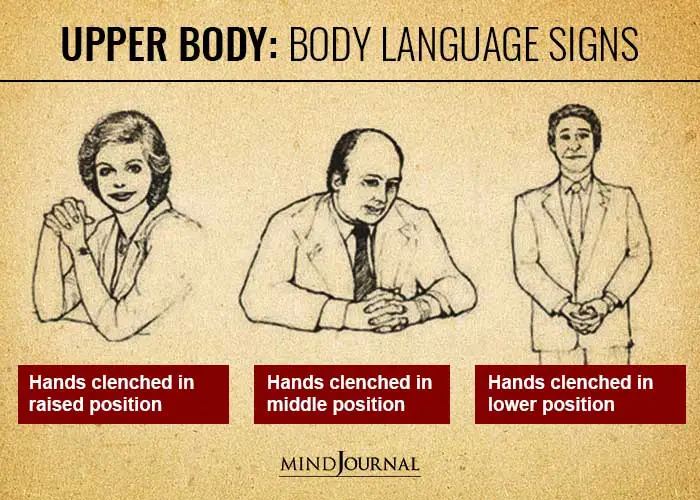
1. Pushing back one’s shoulders can demonstrate power and courage.
2. Open arms mean one is comfortable with being approached and willing to talk/communicate.
3. Folded arms show that there is a sort of barricade between them and other people (or their surroundings) and indicate dissatisfaction.
4. Resting one’s arms behind their neck shows that they are open to what is being discussed and interested in listening more.
5. Pointing one’s finger can be construed as aggression or assertiveness.
6. Touching the front of the neck can show that someone is interested and concerned about what another is saying.
7. Hand movements that are upward & outward signify positive and open messages.
8. Palms that are faced outwards toward another indicate one’s wish to stop and not approach.
9. If one’s fingers are interlaced or if the fingertips are pressed together, it usually shows that a person is thinking and evaluating.
10. If offering ideas to other people, many times the sides of one’s palms are close together, with fingers extended.
Related: Power-Packed Body Language Tips For Making A Killer First Impression
3. Lower Body
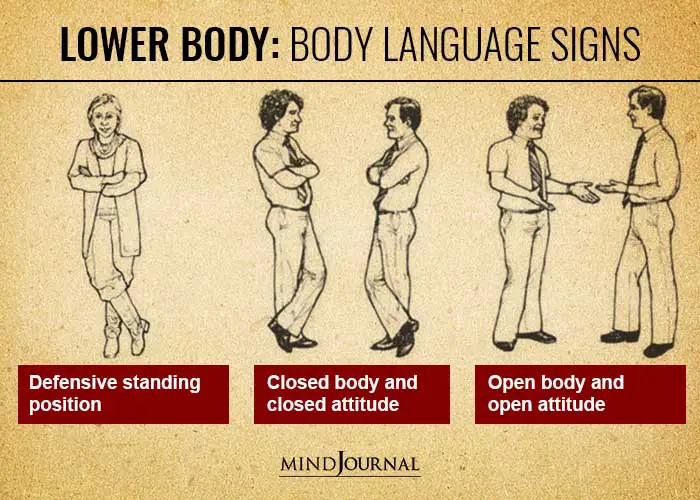
1. Putting your hands on your hips can show eagerness and readiness (also, at times, aggression).
2. Hips pushed forward while leaning back can show that one feels powerful (also can be a suggestive gesture).
3. A wide stance – where one’s feet are positioned far apart – signifies more power and dominance.
4. When one sits with legs open and part, they might feel secure in their surroundings.
5. Crossed legs can mean several things: relaxed/comfortable, or defensive – depending on how tense the leg muscles are.
6. When you cross your legs towards another person, you are showing more interest in them than when they are crossed away in the other direction.
7. A confident and powerful position is the “Figure of Four Cross” when one’s ankle is atop the other leg’s knee and the top leg is pointed sideways.
8. Bouncing your foot if your legs are crossed can show that you are bored or losing patience.
4. Eyes
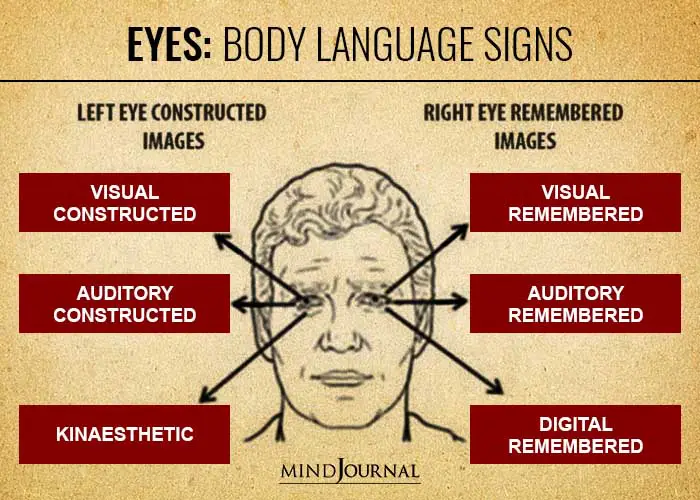
1. The lowering of the eyes can convey fear, guilt, or submission.
2. Lowered eyebrows and squinted eyes illustrate an attempt at understanding what is being said or going on.
3. A lack of confidence or apprehensiveness can be displayed when you don’t look another person in the eyes.
4. One tends to blink more often if nervous or trying to evaluate someone else.
5. If you look directly into another person’s eyes you are displaying self-assurance.
6. Wide eyes show more of an interest in a subject or person.
7. If you are irritated with a comment made by another during a conversation, a common movement is to take a quick glance sideways.
8. Staring at someone can be an aggressive gesture or suggest that the one staring feels dominant.
9. Recalling a memory is usually done by looking up and to the right.
10. Looking directly upward can indicate that one is thinking.
11. Eye contact is normally broken if someone feels insulted by another.
Related: 10 Cuddling Explanations: What Your Sleeping Habits Say About Your Relationship
The next time you meet someone, remember these body language signs and you can strip down naked everyone’s personality!
Source: Simple Capacity
Frequently Asked Questions (FAQs)
Why is body language important?
Body language is important because it helps us understand and dissect what the other person is trying to convey non-verbally. It can also help you interpret a person’s emotions and moods.
What are the types of body language?
The different types of body language are facial expressions, body movements, eye contact, touch, gestures, voice, and space.
What is the strongest body language?
Touch is the strongest type of body language, and probably the most powerful non-verbal cue.
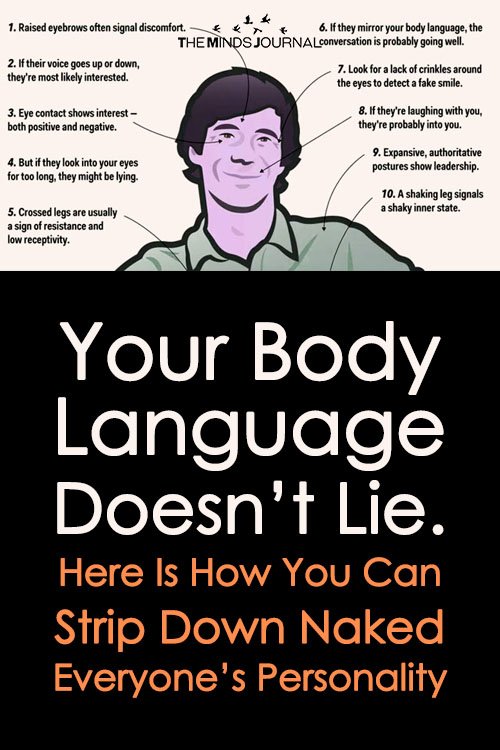
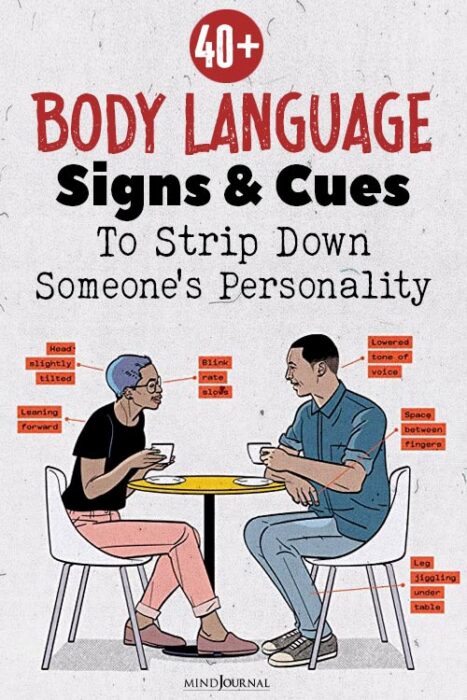
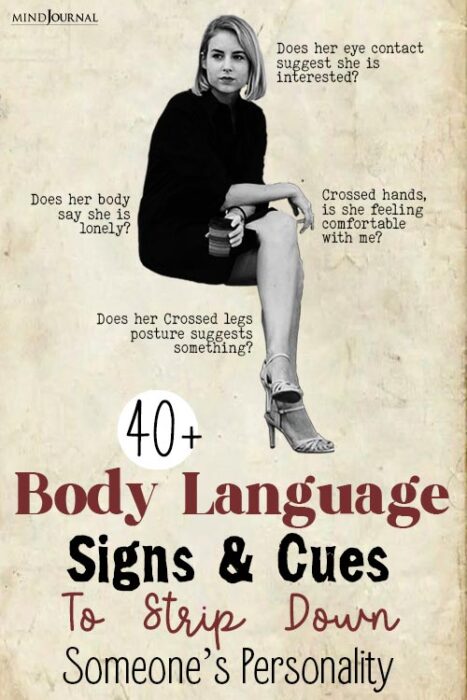
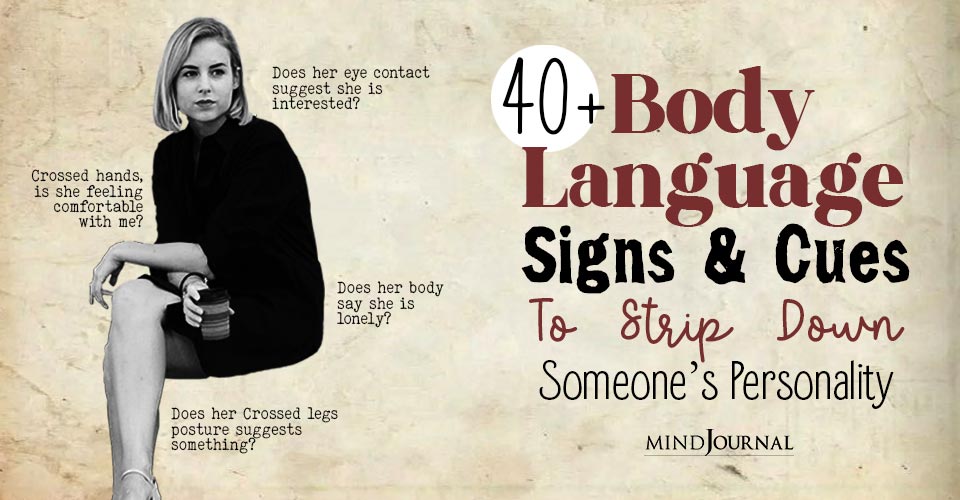







Leave a Reply
You must be logged in to post a comment.